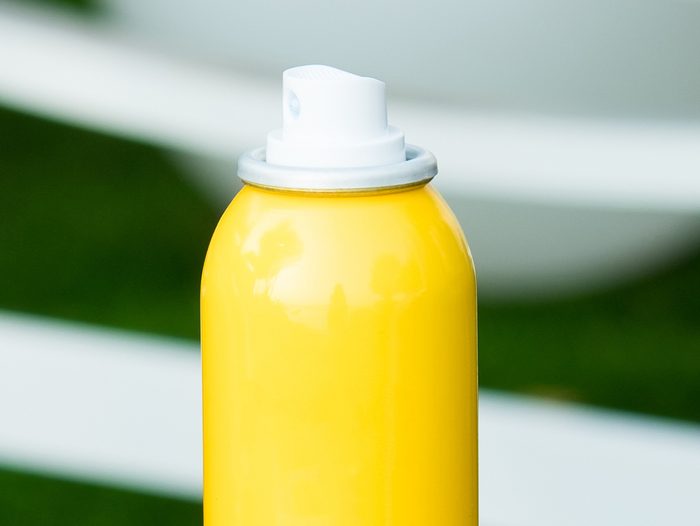What You Need to Know About the Johnson & Johnson Sunscreen Recall in Canada

Johnson & Johnson is recalling select sunscreen products after a cancer-causing chemical was detected in some samples.
On Wednesday, July 14, Johnson & Johnson announced a recall for select sun protection products after internal testing identified low levels of benzene in some samples.
“While benzene is not an ingredient in any of our sunscreen products, it was detected in some samples of the impacted aerosol sunscreen finished products,” Johnson & Johnson stated in a press release. “We are investigating the cause of this issue, which is limited to certain aerosol sunscreen products.”
The recall includes five sunscreen products that were distributed throughout U.S. retailers as well as two products available in Canada. Here’s what you need to know:
What products are being recalled?
In Canada, two Neutrogena products, Beach Defense aerosol sunscreen and Ultra Sheer aerosol sunscreen, have been recalled.
In the U.S. the products being recalled are Neutrogena Beach Defense aerosol sunscreen, Neutrogena Cool Dry Sport aerosol sunscreen, Neutrogena Invisible Daily™ defense aerosol sunscreen, Neutrogena Ultra Sheer aerosol sunscreen and Aveeno Protect + Refresh aerosol sunscreen.
What is benzene, and why is it dangerous?
Benzene is on Canada’s list of toxic substances. It’s a chemical formed from both natural and manufactured sources. It can be found in volcanoes and forest fires, and companies use it to aid in the production of plastics, synthetic fibres, rubbers, lubricants, pesticides and more.
Human exposure to benzene causes cells to malfunction. Exposure to benzene can cause immediate symptoms including drowsiness, irregular heartbeat and tremors. With long-term or repeated exposure, benzene can cause cancer, specifically leukemia.
“Benzene causes harmful effects on the bone marrow and can cause a decrease in red blood cells, leading to anemia,” according to the CDC website. “It can also cause excessive bleeding and can affect the immune system, increasing the chance for infection.” The CDC also notes that for menstruating individuals, benzene can cause irregular menstrual cycles and shrunken ovaries.
What do you do if you have a recalled Johnson & Johnson sunscreen?
Johnson & Johnson is asking consumers to stop using these products immediately and discard them. Customers are encouraged to contact the JJCI Consumer Care Center (1-800-458-1673), which is available 24/7, with any questions or to request a refund. If you’re experiencing any health concerns, contact your physician or healthcare provider.
A reminder: Do not stop using sunscreen altogether
“The amount of benzene found in aerosol sunscreen so far has been quite low,” says Dr. Sunil Kalia, a Vancouver-based dermatologist. “Further testing is needed, but what we know is sunscreens have been used for 40 plus years and we have not seen any of those harmful effects that benzene can cause.”
Skin cancer is a prevalent issue in Canada. According to Health Canada, 1 in 42 men and 1 in 56 women are predicted to develop melanoma in their lifetime.
“In the Dermatology Association, we’re really concerned about skin cancer,” says Kalia. “What’s important is avoiding sun exposure, especially when the sun intensity is very strong, seek shade and then wear protective clothing as much as possible, and where you can’t protect yourself, use sunscreen.”
Next: 8 Simple Tricks to Better Protect Yourself From the Sun




